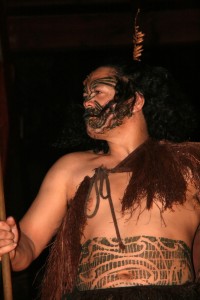Māori Culture – Rangi Weather
 Much of the Māori culture surrounds rangi, which means “weather” or “sky”. The Māori people believed that the drastic changes in weather and seasons were a direct result of two gods who perpetually fight but neither can ever win.
Much of the Māori culture surrounds rangi, which means “weather” or “sky”. The Māori people believed that the drastic changes in weather and seasons were a direct result of two gods who perpetually fight but neither can ever win.
Māori Weather Creation Story
The Māori story of weather creation begins as the children of Ranginui (“Sky Father”) and Papatūānuku (“Earth Mother) worked together to separate their parents to allow light to be shed onto the world. One of their children, Tāwhirimātea (god of the storms and wind) did not join in with his siblings’ plot. Once his parents were separated, he joined his father in the sky where they worked together to plot revenge on his siblings.
This was when Tāwhirimātea began having children whom he sent down to earth. The wind-children were named for the direction they went: tūāraki to the north, tonga to the south, hauāuru to the west, and marangai to the east. He also sent numerous clouds, rains, and hail.
Sibling Rivalry
Tāwhirimātea first attacked his brother Tāne Mahuta, who was the god of the forest and who also separated their parents. Trees were broken in the middle and fell to the earth. Tāwhirimātea then went after his brother Tangaroa, god of the sea, which caused the ocean’s waves to swell very high. Next, Tāwhirimātea went after Rongomātāne and Haumia-tikitiki, the gods of cultivated and uncultivated foods, but they hid inside their Earth Mother for protection.
Perpetual War between Two Brothers
The last brother he attacked was Tūmatauenga, who was the god of humans and of war, who stood firm against the assailing weather-assaults thrown at him by his brother. To this day, Tāwhirimātea and Tūmatauenga continue to fight a battle that neither brother can win.
Click here for further reading on weather and seasons in the Māori Culture.

